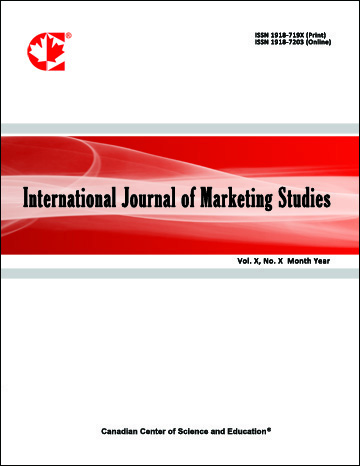The Impact of Greenwashing on Brand Reputation, Brand Credibility, and Green Brand Equity: Evidence from the Household Appliances Market
- Sally Mohamed Amer
- Moataz El Sayed Mohamed Abo El Ezz
Abstract
As customer consciousness of environmental topics increases, green marketing is quickly emerging as a crucial strategy for companies to achieve a competitive advantage. In addition, the rapid expansion of green practices has created concerns among consumers about companies that covertly capitalize on green trends and initiate a discussion about their potential effects on environmental quality. As a result, companies have skillfully used “green” phrases and labeling on any occasion to trick buyers into thinking they are purchasing more environmentally friendly products than they are. Therefore, the question arises: does the practice of greenwashing affect brand reputation, brand credibility, and green brand equity? We assess the proposed model using partial least squares structural equation modeling (Smart PLS software, version 4). Data were collected from 336 customers of green household appliances in Egypt. The results show that greenwashing has a negative effect on green brand equity, brand reputation, and brand credibility. In addition, green brand equity has a positive impact on brand reputation. Brand reputation has a positive influence on brand credibility. Finally, green brand equity has a mediation role in the relationship between greenwashing and brand reputation. The findings have discussed many initiatives intended to lessen the damaging impacts of greenwashing. Additionally, we provide several insightful avenues for the household appliance market.
- Full Text:
 PDF
PDF
- DOI:10.5539/ijms.v15n2p84
Journal Metrics
Google-based Impact Factor (2021): 1.34
h-index (July 2022): 70
i10-index (July 2022): 373
Index
- Academic Journals Database
- CNKI Scholar
- EconBiz
- Electronic Journals Library
- Excellence in Research for Australia (ERA)
- GETIT@YALE (Yale University Library)
- Harvard Library
- IBZ Online
- Infotrieve
- JournalTOCs
- LOCKSS
- MIAR
- PKP Open Archives Harvester
- RePEc
- ResearchGate
- ROAD
- Scilit
- SHERPA/RoMEO
- Stanford Libraries
- UCR Library
Contact
- Alyssa SunEditorial Assistant
- ijms@ccsenet.org
